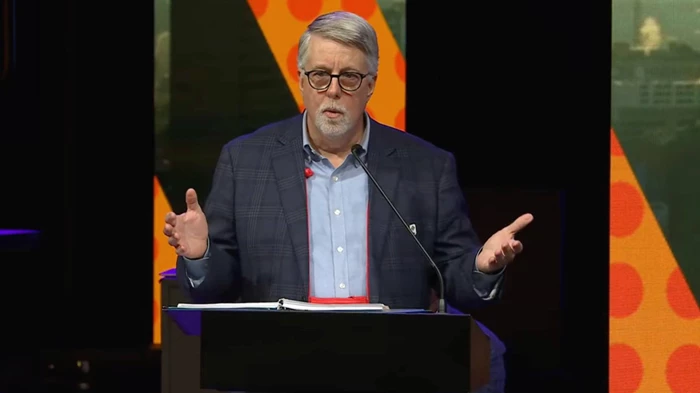Evangelical Presbyterians Debate Over Celibate Gay Pastors
The Evangelical Presbyterian Church (EPC) recently convened its 43rd General Assembly, which brought to the fore a contentious debate on the acceptance and ordination of celibate gay pastors. Held in Denver, Colorado, the assembly saw a gathering of over 600 commissioners who grappled with the complex intersection of theology, sexuality, and pastoral qualifications.
Background and Context
The discussion was ignited by the increasing visibility and voices of LGBTQ+ Christians within conservative denominations. As society evolves and more individuals openly express their sexual orientation, the EPC, like many other conservative Christian denominations, is faced with the challenge of navigating these waters while remaining true to its doctrinal commitments.
Key Issues at Stake
Central to the debate is whether celibate gay individuals, who adhere to traditional Christian teachings on sexual ethics, should be permitted to serve as pastors. The EPC’s position on homosexuality has historically been one of adherence to Biblical teachings, which view homosexual acts as sinful. However, there is a growing acknowledgment within the church that same-sex attraction itself is not necessarily sinful, provided it is not acted upon.
Rev. Tom Werner, the outgoing moderator of the EPC, emphasized the church’s commitment to Biblical orthodoxy. “We are a church that believes in the authority of Scripture, and we must navigate these issues with compassion and truth,” he stated. Werner’s comments reflect the delicate balance the denomination seeks to maintain between upholding traditional values and addressing the pastoral care needs of all its members.
Differing Perspectives Within the Church
During the assembly, commissioners voiced a range of opinions. Some argued that allowing celibate gay pastors would be a step towards greater inclusivity and pastoral care. They contended that celibate gay Christians, who faithfully follow the church’s teachings on sexuality, should not be barred from pastoral roles.
Rev. Scott McLean, a pastor from Florida, argued, “We must recognize the distinction between orientation and behavior. A celibate gay Christian who lives a life of fidelity to Biblical teaching should be considered for pastoral ministry.” His viewpoint was met with both support and resistance.
On the other side of the debate, many expressed concerns that ordaining celibate gay pastors might be seen as a tacit endorsement of homosexuality, potentially leading to doctrinal compromises in the future. They stressed the importance of maintaining clear theological boundaries to safeguard the church’s teachings.
A Conservative Bias Approach
From a conservative perspective, the debate within the EPC is a critical moment for the denomination to reaffirm its commitment to Biblical principles. The concern is that even a slight shift in stance could lead to further erosion of traditional values. This viewpoint underscores the importance of adhering strictly to Scripture and the potential risks of deviating from established doctrines.
In this context, it is crucial to note that the EPC’s deliberations are not merely about inclusivity but about theological integrity. The denomination’s leadership is aware of the broader implications of their decisions, both for the church’s internal coherence and its witness to the broader society.
Outcomes and Future Directions
The assembly did not reach a definitive conclusion, highlighting the complexity and sensitivity of the issue. Instead, a task force was established to study the matter further and provide recommendations. This decision underscores the denomination’s cautious approach, prioritizing thorough theological reflection over hasty resolutions.
Rev. Werner expressed optimism about the task force’s work, stating, “We believe that careful study and prayerful consideration will guide us to a decision that honors God and serves our church faithfully.” His remarks reflect the denomination’s hope that a thoughtful, measured approach will lead to a resolution that upholds the church’s values while addressing the pastoral needs of its members.
Conclusion
The EPC’s debate over celibate gay pastors is emblematic of the broader challenges faced by conservative Christian denominations in contemporary society. As they navigate these complex issues, the emphasis remains on faithfulness to Biblical teachings and the careful consideration of pastoral care needs. The outcome of the task force’s work will be closely watched, not only within the EPC but across the wider evangelical community, as denominations seek to address similar challenges in their own contexts.
